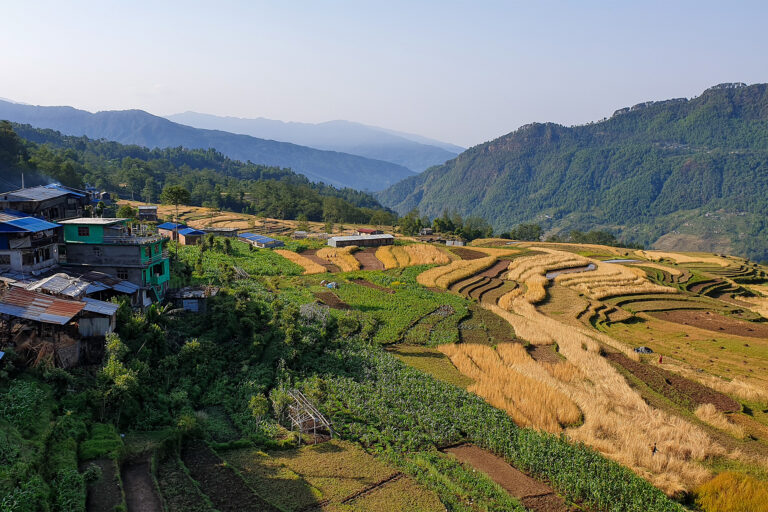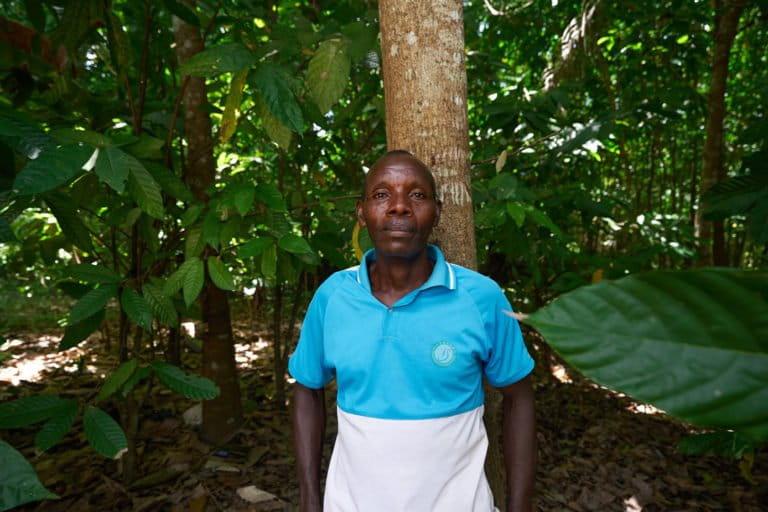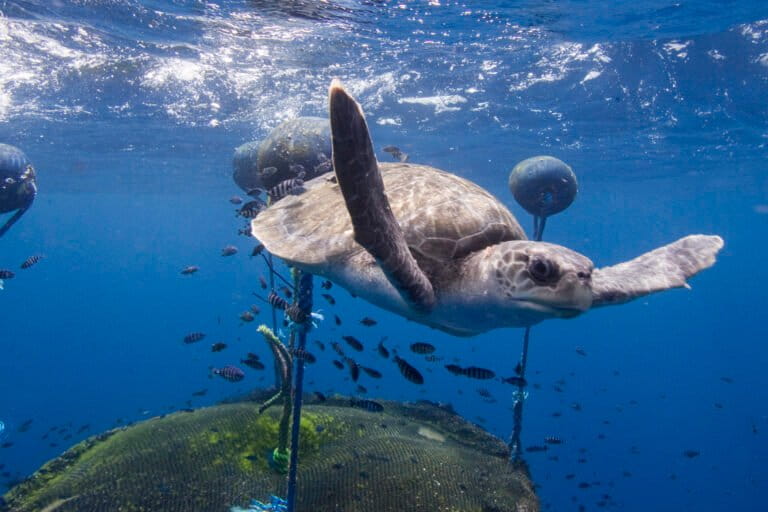- Three weeks after being named in a second probe into alleged illegal exports of Amazon timber and facing growing opposition, Brazil’s controversial environment minister, Ricardo Salles, was ousted on June 23 “upon request,” as announced in the country’s official gazette.
- Despite his controversial remarks and heavily criticized policies that fueled deforestation rates in the Amazon, Salles enjoyed relative stability in the government, until a month ago when the legal troubles flared up.
- In a press conference in Brasília, Salles said he was resigning to allow the facilitation of the country’s environmental negotiations on the international stage and in the national agenda, which will require Brazil to “have a strong union of interests.”
- Salles has been replaced by Joaquim Alves Pereira Leite, who has been in the environment ministry since 2019 and held a board seat for more than 20 years at an agribusiness lobbying institute. While some politicians have welcomed his appointment, others have called for a shift in Brazil’s environmental policies.
Three weeks after being named in a second probe into alleged illegal exports of Amazon timber and facing growing opposition, Brazil’s controversial environment minister, Ricardo Salles, was ousted on June 23 “upon request,” as announced in the country’s official gazette.
When Salles was appointed minister in January 2019, he faced immediate criticism due to his conviction for administrative impropriety related to his term as secretary of the environment for the state of São Paulo just before taking federal office. But he enjoyed relative stability despite his controversial remarks and heavily criticized policies that fueled deforestation rates in the Amazon. That was until a month ago, when a new spate of legal troubles flared up, starting with a police probe linking a law firm where Salles is one of the stakeholders to suspicious financial transations amounting to 14.2 million reais ($2.9 million).
In a press conference in Brasília, Salles said he was resigning to allow the facilitation of the country’s environmental negotiations on the international stage and in the national agenda, which will require Brazil to “have a strong union of interests.” “To allow that to be done in the most serene manner possible, I have submitted my resignation to the president,” he said.
President Jair Bolsonaro has appointed the ministry’s secretary for the Amazon and environmental services, Joaquim Alves Pereira Leite, to replace Salles. It is unclear if this is a temporary appointment.

Pressure for Salles to leave office has mounted since May, when a Federal Supreme Court (STF) ruling allowed federal police to conduct raids targeting Salles and other officials on May 19. Police have dubbed the case Operation Akuanduba, after a deity from the mythology of the Araras Indigenous group of Pará state. According to legend, if someone commits any excesses that violate the norms, the deity will sound a small flute to restore order. On June 2, the STF authorized a second investigation against Salles for alleged obstruction of a police probe into the country’s biggest ever bust of illegal timber in the Amazon Rainforest.
In March, following the seizure, Salles traveled to the site in the Amazon and declared on social media accounts that he had personally checked the origin of a sample of the wood and found it was not of illegal origin, despite the police’s evidence to the contrary.
Having served as environment minister since the start of Bolsonaro’s presidency, Salles said he has always put in practice the president’s directions. “This orientation was to have an equilibrium between economic development and environmental preservation,” he said in the press conference.
On June 22, the day before Salles’s resignation, Bolsonaro praised him at a public event in what now appears to have been a public sendoff. “You are part of this story, Ricardo Salles. The marriage between agriculture and the environment was an almost perfect marriage. It is not easy to occupy your ministry,” the president said.

Salles had faced criticism from environmental advocates all over the world long before the criminal investigations started. In May 2020, he was recorded in a cabinet meeting saying that the government should push for environmental deregulation while the public was “distracted by the pandemic.”
Salles has been under international scrutiny since taking office, when the Amazon Fund was ended. During his first months in office, he interfered with the billion-dollar fund, a project financed by countries such as Germany and Norway to preserve the rainforest. The government dissolved two technical committees that were essential to the fund’s maintenance, and the international donors pulled out.
More recently, Salles had started negotiations to build a partnership with the U.S. administration of President Joe Biden. In February, he met with Biden’s special climate envoy, former secretary of state John Kerry, who demanded concrete actions from Brazil’s government as a demonstration of a real commitment to the environment and to fight forest fires and global warming.
Leite, Salles’s replacement, has worked in the environment ministry since July 2019, having passed through the department of forests and development, in addition to the Amazon department.
To join the ministry, Leite had to leave his board seat at the Brazilian Rural Society (SRB), a position he had held for more than 20 years. The SRB’s main goal is to defend agribusiness policies, according to its own website. It also supports the Parliamentary Front for Agriculture, also known as the bancada ruralista (the “ruralist bench”), a caucus of more than 200 pro-agribusiness federal lawmakers.
Leite also owned a coffee farm for more than 10 years, until 2002, and held positions in a chemical company and a consulting firm, among others. A story published by BBC shows that Leite’s family has been involved for decades in a land dispute over the Jaraguá Indigenous Reserve, the smallest demarcated area for Indigenous people in Brazil (less than 5 acres).
Some politicians have called on the government to use the opportunity presented by Salles’s resignation to shift the country’s environmental policies. Rodrigo de Castro, congressional leader of the PSDB, one of the most important liberal parties, made the call for a change on social media.
“May the resignation of Ricardo Salles, which has been awaited for some time, in fact represent a shift in the direction of Brazilian environmental policy and may the setbacks observed in recent years be repaired. It is necessary to restore Brazil’s image abroad in this environmental issue,” he wrote.
Marcelo Ramos, deputy president of the lower house of Congress from the liberal party, or PL, said he believes the announcement of Salles’s resignation was meant to divert public attention from corruption allegations linked to the COVID-19 pandemic. Bolsonaro’s cabinet has been accused of overpaying for the acquisition of Covaxin, the Indian vaccine to fight COVID-19.
Lower house lawmaker Sergio Souza, president of the agribusiness caucus, said the appointment of Leite is “positive to the environment and food production. He is responsible for the program Floresta+ and demonstrates a profile of concern with conservation.”

A Twitter account maintained by anonymous officials from IBAMA, the federal environmental protection agency, has highlighted other two investigations in which Salles might be implicated. One of them is a Federal Public Ministry probe for allegedly favoring companies in a public bid for commercial space in the most famous tourist site in Brazil, the Christ the Redeemer statue in Rio de Janeiro. The second probe is led by prosecutors from the Federal Court of Accounts (MPTCU) into a suspicious contract to rent helicopters on an emergency basis for the Environment Ministry.
“It is unsustainable that a person investigated for timber smuggling was in charge of the Brazilian Ministry of the Environment,” said Adriana Ramos, an associate at the nonprofit Instituto Socioambiental (ISA), which advocates for Indigenous rights, in a tweet. “Regrettably what he leaves behind is the increase in emissions from deforestation and fires; the dismantling of environmental agencies, mainly in inspection and control; and Brazil’s loss of credibility on the international scene due to the absence of a serious environmental policy.”
Joenia Wapichana, the first Indigenous woman elected to the lower house of Congress, named Salles a “destroyer of the Amazon and Indigenous lands” and urged further investigation. “May investigations be completed and all crimes investigated!” she said in a tweet.
Related listening: hear Mongabay editor Karla Mendes discuss this issue on Living on Earth, the environmental news program heard on US national public radio:
Banner image: A photo posted on Twitter by Salles in May 2021 stating his support against illegal logging. Image via @rsallesmma/Twitter reproduction.
FEEDBACK: Use this form to send a message to the author of this post. If you want to post a public comment, you can do that at the bottom of the page.














